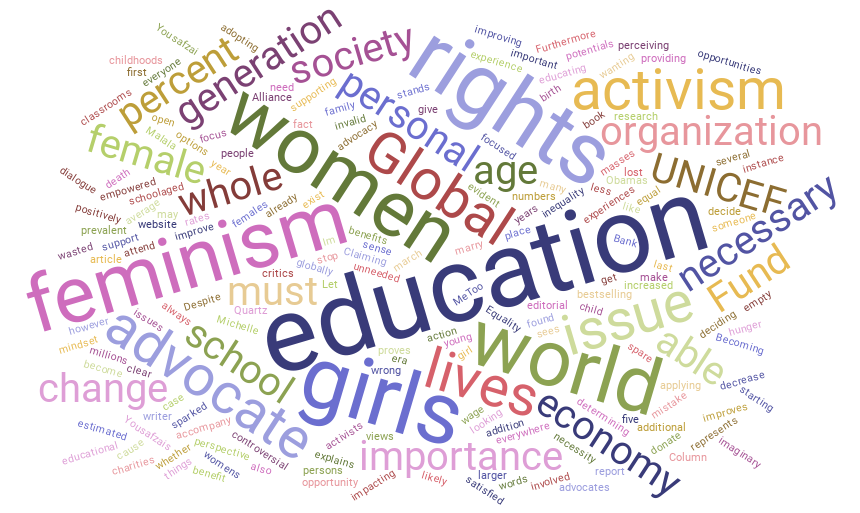Global Equality in Education Sparks Activism
Over 130 million school-aged girls around the world are out of school, according to the World Bank organization in September of 2018.
December 27, 2018
An age of empowered women has sparked advocacy and action from women’s rights activists everywhere. From the #MeToo era to Michelle Obama’s bestselling book Becoming, the women’s march and Malala Yousafzai’s organization, feminism represents many things. One issue in particular stands out to the masses — education.
Women’s rights activism is necessary to advocate for girls’ education rights; not only does educating women improve the lives of females globally, it also benefits society as a whole.
Despite numbers supporting the importance of change, critics always accompany controversial issues such as feminism. In an opinion article from Quartz, a website focused on the global economy, writer Ephrat Livni explains her views.
“From my perspective, I’m already equal” Livni said in her article; according to Livni’s personal experiences, feminism is unneeded.
The mistake people such as Livni make when determining the importance of women’s rights activism is looking for inequality in the wrong place. Claiming feminism is invalid because of one person’s experience is like deciding whether someone has a broken arm by x-raying their foot.
In fact, the issue is clear; over 130 million school-aged girls around the world are out of school, according to the World Bank organization in September of 2018.
Not only is the necessity of women’s rights prevalent, but further research proves that female education improves the lives of women around the world. When a girl is able to attend school, she is less likely to marry and give birth young, according to UNICEF.
In addition to improving women’s family lives, UNICEF also found that a woman’s wage is increased by an average of 15 percent for each additional year of schooling — thus positively impacting the economy.
Furthermore, if all girls had the opportunity for 12 years of education, child death rates under the age of five would decrease by an estimated 49 percent, a report by the Malala Fund said.
It is evident that girls’ education rights are necessary to benefit both women and society as a whole. As with any cause, several options exist for those wanting to get involved.
For those who have spare change, charities such as the Malala Fund and the Global Girls Alliance focus on providing educational opportunities to women and girls around the world.
In a larger sense, however, not everyone is able to donate. In that case, one may advocate by adopting an open mindset and applying it to personal dialogue.
For instance, the world must stop perceiving feminism as an imaginary issue. The need for female education is a hunger that must be satisfied, starting with a generation of advocates.
In the words of Malala Yousafzai, “Let us become the first generation to decide to be the last that sees empty classrooms, lost childhoods, and wasted potentials.”


